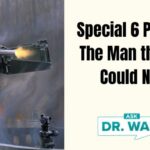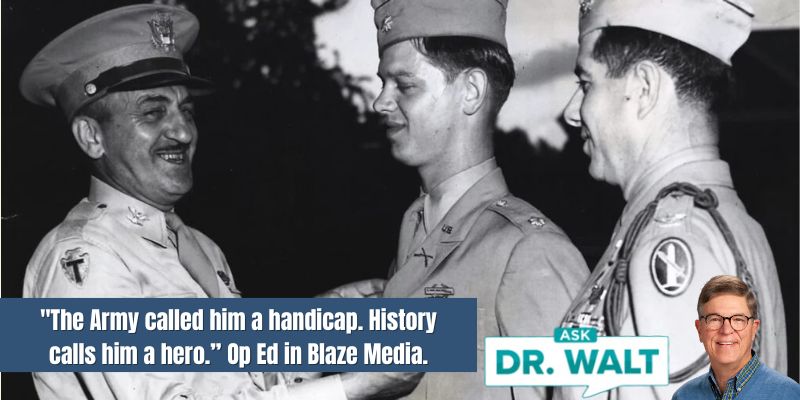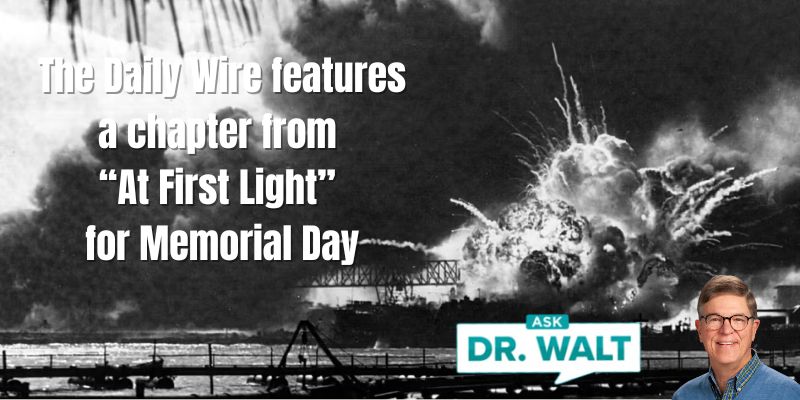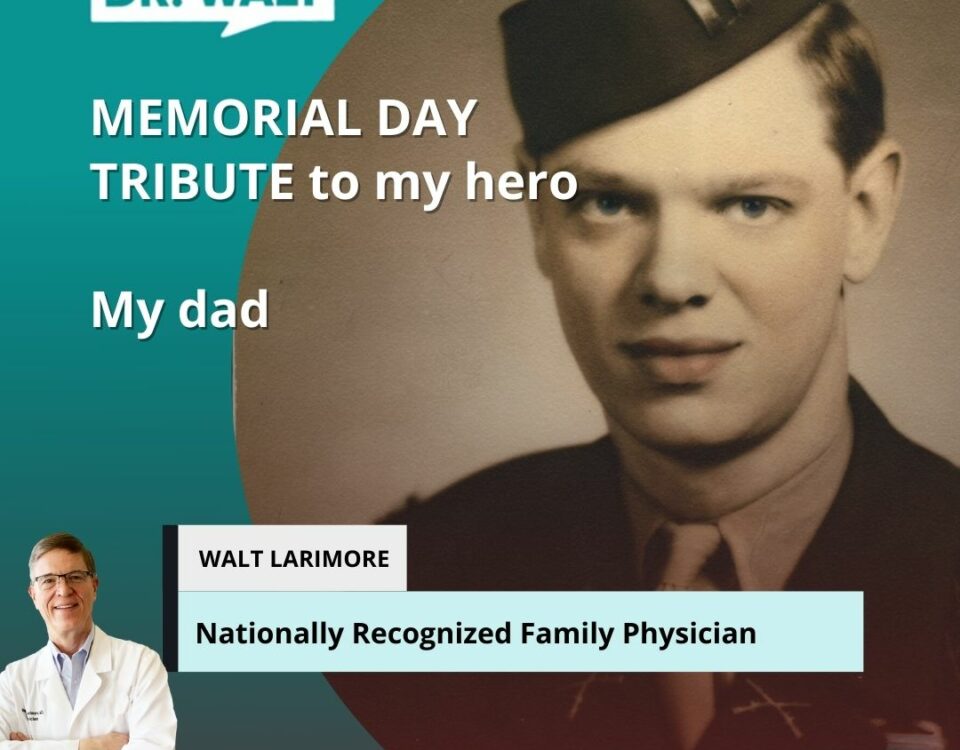
April 6, 1945 (Part 2) — Attacking a deceptively quaint but deadly German farming village
April 6, 2025
April 8, 1945 (Part 1) — Phil severely wounded one month before the end of the war
April 8, 2025April 7, 1945 — The amazing capture of the Bad Kissingen resort and for a fleeting moment the war was forgotten
After daybreak and a warm, filling breakfast on a chilly spring morning with unlimited visibility, Phil and his men in Company L jumped off from Albertshausen in the direction of the town of Bad Kissingen, which boasted a world-famed spa noted for its fine mineral springs and numerous resort hotels.[1] Twenty-eight hostelries had been converted into German military hospitals, whose red-crossed roofs had saved the city from Allied bombing.[2]

In the early afternoon of April 7, 1945, at 1315 hours, Phil received an unusual radio call from one of his platoon leaders, Lieutenant Emil T. Byke, who was leading a reconnaissance patrol.
“Love 6,” Byke began, “one of my squad leaders reported a vehicle just outside Bad Kissingen, displaying a white flag. I went to verify the report and found three German military personnel in the vehicle. I approached the Germans with coverage all around and was greeted by two German officers who, in broken English, asked if I would go into the town of Bad Kissingen with them and meet their commander. They want to surrender.”
“Were the officers SS?” Phil asked. The memories of what had happened in Oberthulba the day before were fresh in his mind.
“Nope.”
“Permission granted. Just be sure to take a well-armed Jeep or two with you.”
“Yes, sir.”
As the HQ Company moved forward, Byke radioed back an hour later.
“Love 6, the damnedest thing just happened.”
“What?”
“When we arrived in Bad Kissingen, we were met by a German soldier who couldn’t have been more than fourteen years old. He was carrying a white flag and spoke excellent English. We followed him to the town square, which was filled with German soldiers who had stacked their arms in piles before us. Two bodies were hanging from the city hall balcony. They were two local officials who wanted to surrender. SS troopers had hung them as traitors.”
“Are the SS guys still around?” Phil asked.
“Flew the coop,” Byke replied. “The German officers presented me to their commander. Through the kid, this commander told me that he wished to surrender and wants me to convey the message up the ladder. I agreed to do that, but before we departed, he took us to a nearby hospital. We found a bunch of our wounded GIs there. They were all crying with joy at seeing us. Some of the boys hugged me and wanted to know if they were going home. I told them that we were at the gates of the city and that I would return as fast as possible.”
“Good work,” Phil said.
“Thanks, but that’s not all. You should have seen the dirty looks we got from the wounded and sick German soldiers. I especially remember one proud Kraut. He was sitting in front of a large window with his hands folded, medals all over his chest, giving everybody the evil eye. I could have shot the SOB!”
“I bet you could have. Well done,” Phil said. “I’ll pass your report on.”
Phil radioed battalion and was put in touch with Lieutenant Colonel James E. Chaney, the battalion commander. After relaying the news, Chaney told Phil to meet him outside of town at Byke’s Jeep.
When Phil and Abe arrived, they found Lieutenant Byke had placed his men at advantageous points on the hills surrounding Bad Kissingen. At the same time, Company M, commanded by 1st Lieutenant Harold J. Saine, brought up mortars and placed them in firing position “just in case.” He then sent two squads inside the city for reconnaissance.
While they waited for a report, Byke gave Phil an update on the resort town’s military hospitals. “All the wounded GIs appear to have been well cared for. They said the bedding, bandages, and entire area was as clean and orderly as any hospital you might imagine. They’re impressed with everything; except they say the nurses look like battle axes. Big and mean-looking. Nothing like our gals.”
Just then, Colonel Chaney’s Jeep screeched to a halt. Phil and Byke updated him on the latest developments. It was looking like they could safely meet the German commander in the town center to discuss terms of the surrender. With two squads of riflemen providing protection, they slowly drove their Jeeps into the resort town, encountering no hostile fire. As they drove through the quiet streets, the colonel whistled.
“Look at this. The buildings are completely unscratched,” Chaney said. “I guess our guys in their hospitals saved their asses. Otherwise, this place would have been destroyed.”
Their delegation was met at the center of town in front of City Hall, where a German general and his command officers were waiting for their arrival. All were unarmed.
After handshakes, they sat down in an office. The first question Colonel Chaney asked was this: “Do you understand what unconditional surrender is?”
The reply from the German side was affirmative.
“As you know,” Chaney continued, “Bad Kissingen is an important rail and highway center. Because its spacious buildings can easily accommodate thousands of troops, Bad Kissingen is a highly desirable military prize. I must emphasize that the 3rd Division will not accept Bad Kissingen as an ‘open city,’ however. It will be used as a military base for United States troops. Is that acceptable?”
As if you have a choice, buster, Phil thought.
The general nodded his approval, and that was that.
Phil walked back with Chaney to a Jeep with a radioman. The colonel called Regimental Commander, Colonel McGarr, at 1650 hours.
“I accepted the surrender of the Germans in Bad Kissingen,” Chaney told McGarr. “There are around 2,800 patients in two dozen or so hospitals in the town, and the German general said he and his staff would be responsible for the German wounded. I’ve arranged to get our Red Cross folks up here with cigarettes and chocolate for our American POWs.”
After the report, Phil, Abe, and several of their men walked around the town, rifles slung over their shoulders. They came across a factory that manufactured dress suits. They went inside the factory, where they took turns putting on high hats and bow ties with their dirty uniforms, laughing at the incongruous look. There were also bolts and bolts of silk fabric—white, shiny, and smooth to the touch. The men didn’t have the foggiest idea why the Germans were still making such finery in time of war. The men cut off pieces of the satiny fabric to make handsome scarves, which they draped around their necks and under their collars, giving a regal appearance.
For a fleeting moment, the war was forgotten.
Meanwhile, the 3rd Battalion rounded up German prisoners in Bad Kissingen, capturing 2,825 that day, a record for the division. That night, the Regimental CP set up in a beautiful hotel just on the outskirts of town. When Colonel McGarr arrived, he made the men wipe their feet before they walked into the marble-floored lobby.
Phil and his men stayed in a ritzy hotel in the center of town that night. After placing guards and outposts, the men were served a hot meal, received clean clothes, and were handed their mail. Most of the men were nearly giddy with the opportunity to write letters and enjoy some good food. For the second night in a row, they slept on mattresses.
The Love Company officers enjoyed a nightcap and cigars together, dog-tired but proud of the battles and victories of the three previous days. In many ways, everything had gone perfectly.
Abe blew a ring of smoke and looked at Phil. “I can feel it in my bones,” he said. “This damn war is almost over.”
“Hope you’re right, Abe,” Phil said softly. “Hope you’re right.”
~~~~~
[1] Larimore, At First Light, 250.
[2] Bad Kissingen had first been developed as a spa in the 1500s and grew to be a fashionable resort in the 19th century, when it was rebuilt during the reign of King Ludwig I of Bavaria. Crowned heads of state, including Empress Elisabeth of Austria, Tsar Alexander II of Russia, Imperial Chancellor Otto von Bismarck, and King Ludwig II of Bavaria (also called “Mad King Ludwig” and best known for his construction of Neuschwanstein, the castle Walt Disney used to model his own Sleeping Beauty Castle at Disneyland) were among the guests.
[3] Larimore, Ibid, 250-253.
Learn more about my book about my father’s heroics and exploits at Amazon’s First Light page here. You can also read more of my WWII blogs here as well!
© Copyright WLL, INC. 2025.




